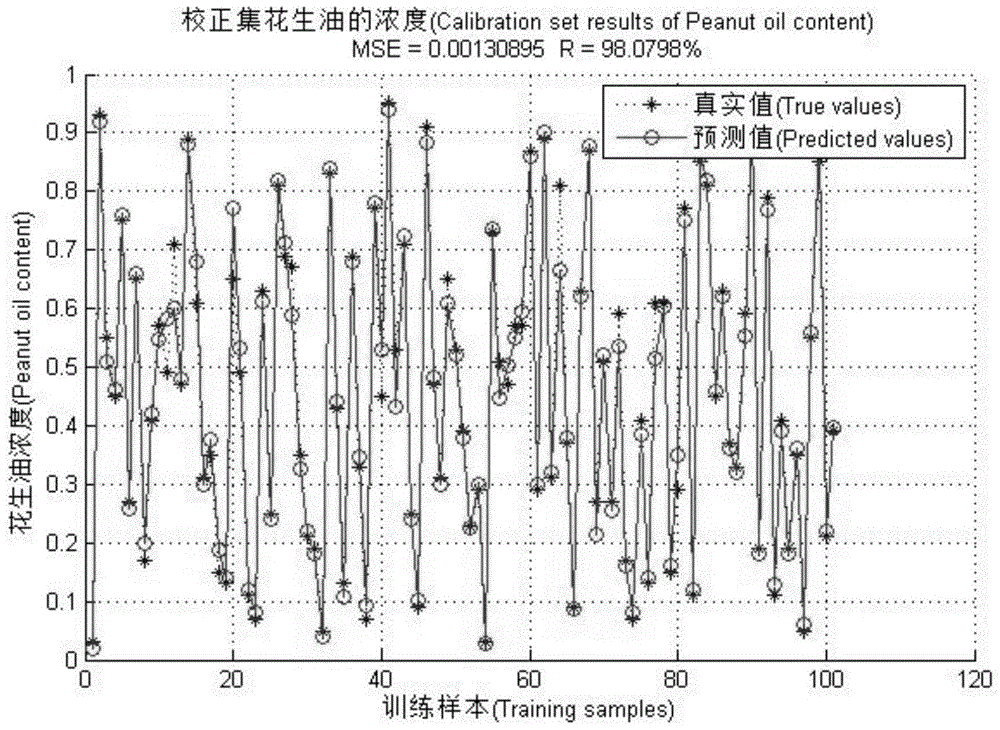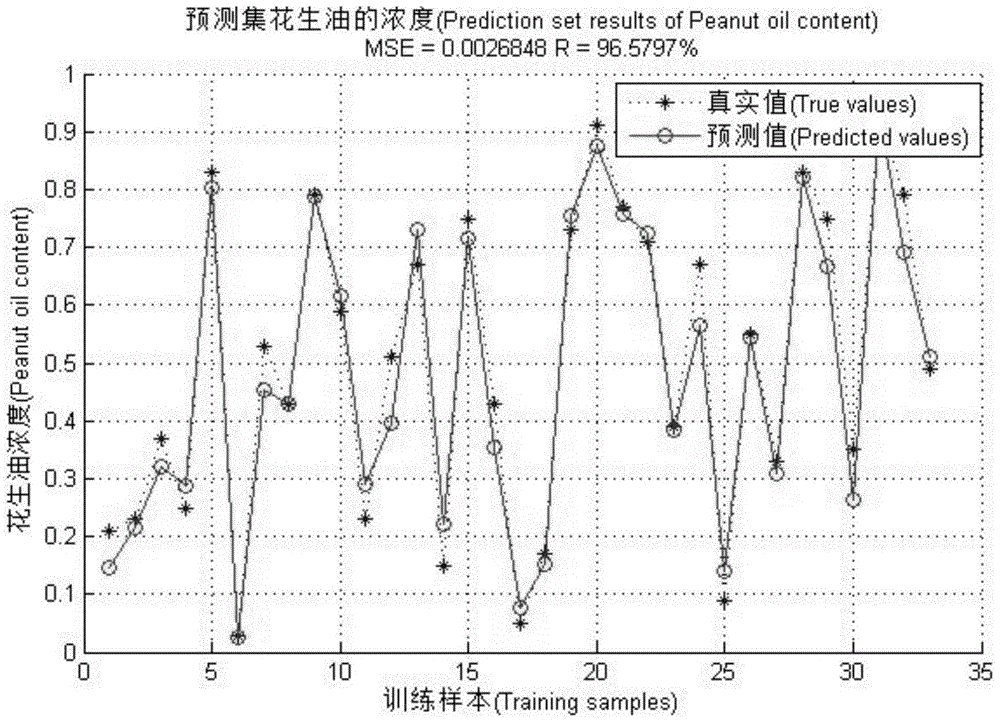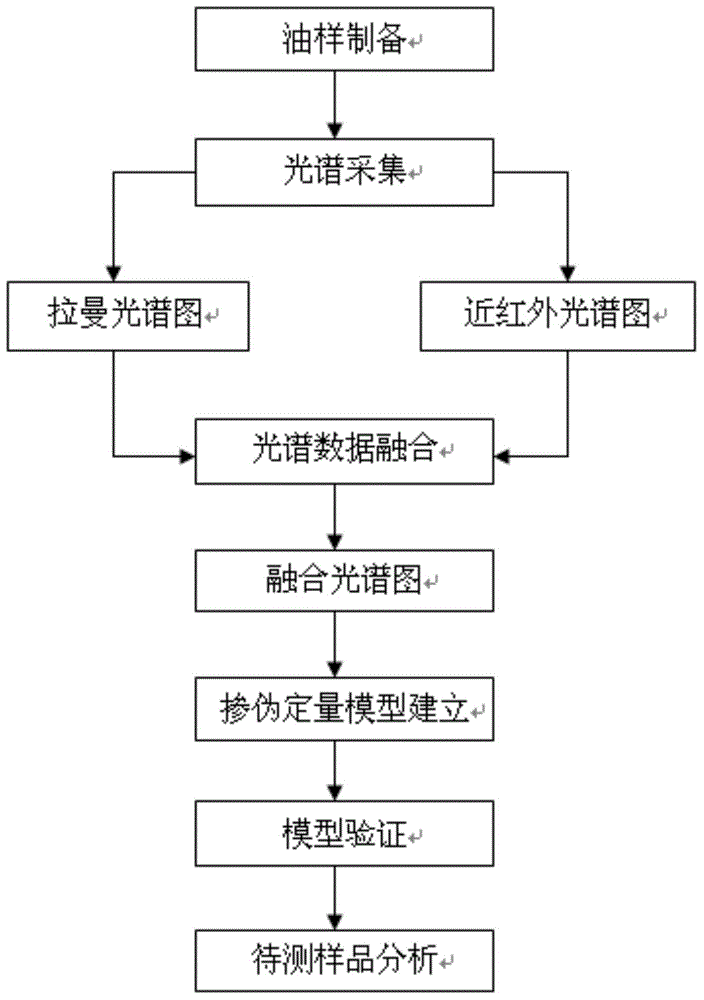Quantitative adulteration detection method for peanut oil based on multiple-source spectroscopic data fusion
A technology of spectral data and detection methods, applied in measurement devices, material analysis by optical means, instruments, etc., can solve problems such as harming consumers' rights and interests, and achieve the effect of reliable detection means, strong applicability, and no need for preprocessing
- Summary
- Abstract
- Description
- Claims
- Application Information
AI Technical Summary
Problems solved by technology
Method used
Image
Examples
Embodiment Construction
[0027] The present invention will be further described in detail below in conjunction with the accompanying drawings, so that those skilled in the art can implement it with reference to the description.
[0028] Such as figure 1 As shown, the present invention provides a peanut oil adulteration quantitative detection method based on multi-source spectral data fusion, comprising the steps of:
[0029] 1) Preparation of oil samples: In several peanut oil samples of equal mass, the same other edible oils were sequentially mixed in different mass ratios of 3% to 95%, to obtain several adulterated oil samples;
[0030] 2) Spectrum acquisition: use Raman spectrometer and near-infrared spectrometer to collect Raman spectrograms and near-infrared spectrograms of all adulterated oil samples in step 1) respectively, wherein, the Raman spectrometer spectrum acquisition process is as follows: The sample tube of the oil sample is placed in an electronic constant temperature water bath and...
PUM
 Login to View More
Login to View More Abstract
Description
Claims
Application Information
 Login to View More
Login to View More - R&D
- Intellectual Property
- Life Sciences
- Materials
- Tech Scout
- Unparalleled Data Quality
- Higher Quality Content
- 60% Fewer Hallucinations
Browse by: Latest US Patents, China's latest patents, Technical Efficacy Thesaurus, Application Domain, Technology Topic, Popular Technical Reports.
© 2025 PatSnap. All rights reserved.Legal|Privacy policy|Modern Slavery Act Transparency Statement|Sitemap|About US| Contact US: help@patsnap.com



